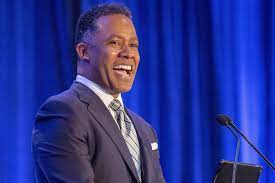In addition to the speeches presented at the ABA’s 38th Annual National Institute on White Collar Crime, by Deputy Attorney General Lisa Monaco (2023 Monaco Speech) and Assistant Attorney General Kenneth A. Polite (Polite Speech); there was the release of the 2023 U.S. Department of Justice Criminal Division Evaluation of Corporate Compliance Programs (ECCP). Today we will conclude our multi-part review of this document by some of the other key changes and additions to the document and what it all means for the compliance professional going forward.
Use of Monitors
In the introduction its states, “Moreover, Criminal Division policies on monitor selection instruct prosecutors to consider, at the time of the resolution, whether the corporation has made significant investments in, and improvements to, its corporate compliance program and internal controls systems and whether remedial improvements to the compliance program and internal controls have been tested to demonstrate that they would prevent or detect similar misconduct in the future to determine whether a monitor is appropriate.” This language is a firm reject of the Benzkowski Memo and the prior administration’s reticence to employ monitorships as a tool to ensure compliance with not only the settlement documents but also the creation and implementation of a compliance program.
Internal Compliance Controls
Under Section II, entitled “Is the Corporation’s Compliance Program Adequately Resourced and Empowered to Function Effectively?”, is the new language, “In this regard, prosecutors should evaluate a corporation’s method for assessing and addressing applicable risks and designing appropriate controls to manage these risks.” This simple sentence packs quite a wallop as it mandates a risk assessment, design and implementation of appropriate internal compliance controls and then monitoring of those controls to see if they are managing the risks identified in the risk assessment. Many of these concepts are fleshed out in the ECCP but it is clear this is a minimum expectation from the Department of Justice (DOJ).
Adequate Compensation and Salary/Bonus Review for Compliance
Under Section III, “Does Your Compliance Program Work in Practice”, is the following new language: “Independence and Empowerment – Is compensation for employees who are responsible for investigating and adjudicating misconduct structured in a way that ensures the compliance team is empowered to enforce the policies and ethical values of the company? Who determines the compensation, including bonuses, as well as discipline and promotion of compliance personnel or others within the organization that have a role in the disciplinary process generally?”
This is a significant new addition to the ECCP. It forces a company to adequately compensate those employees who investigate and pass judgment on misconduct. But it is more than simply adequate compensation as it also requires a company not to retaliate via low salaries or limited raises or other compensation for doing their jobs as compliance officers. In other words, if the Chief Executive Officer (CEO) is being investigated by compliance; that same CEO should not be setting or reviewing the salary of the Chief Compliance Officer (CCO) or those doing the investigation. This mandates that the DOJ will review the entire corporate organization on these issues.
Final Thoughts
This brings us to the end of a series of momentous announcements by the DOJ. While we have not discussed the changes in monitor selection announced by Polite as it largely deals with internal DOJ process, we would note that it will require a more lengthy and rigorous request process for those prosecutors’ seeking monitors, as well as a review process up to perhaps even the DAG. This alone could lengthen out an entire Foreign Corrupt Practices Act (FCPA) enforcement action.
The incentives language, both financial and non-financial, will require a much deeper analysis by a corporate compliance program in the areas of compensation, as well as promotion, than has even been mandated. The first thing I would do as a CCO is go down the hall to speak with the head of Human Resources (HR) to get an understanding of how compensation is based and what factors of doing business ethically and in compliance are reviewed for both salary and discretionary bonus amounts. The same would hold true for promotion into both middle and senior management. All of these will need to have metrics or other auditable frameworks around them so they can be reviewed, tested and data presented to the regulators if they come knocking.
The language around messaging apps needs to be taken to heart by not simply the compliance function but all senior level executives. While the Securities and Exchange Commission (SEC) has garnered the most publicity for its fines levied on regulated industries, the new language of the ECCP makes clear the DOJ is equally concerned about this issue. Woe be it to any company which finds itself in a FCPA investigation or enforcement action where said company does not meet these DOJ requirements. The DOJ will most probably assume a willful failure to meet the strictures of the 2023 ECCP.
Obviously, the Biden Administration DOJ is stepping away from some of the initiatives of the Trump Administration DOJ. However, in other areas this DOJ is building on some of the steps of the prior administration. It is clear the DOJ is continuing to evolve in its thinking about what constitutes a best practices compliance program and will continue to do so. Compliance professionals will need to study these new initiatives and implement their requirements.








